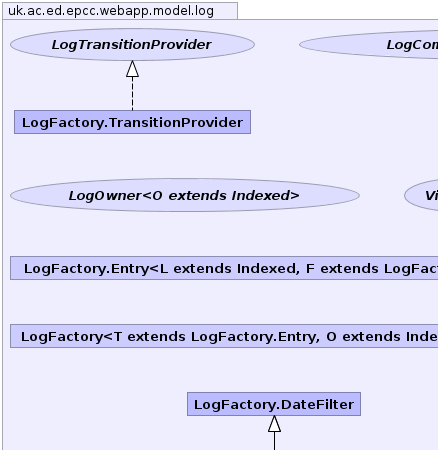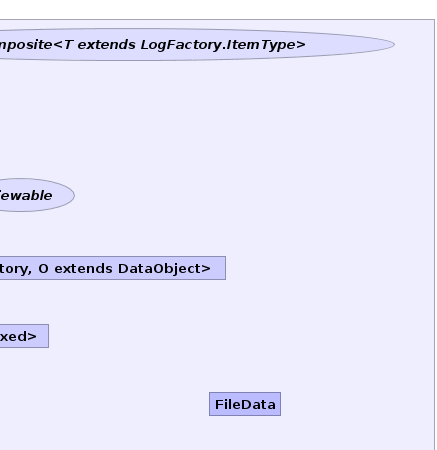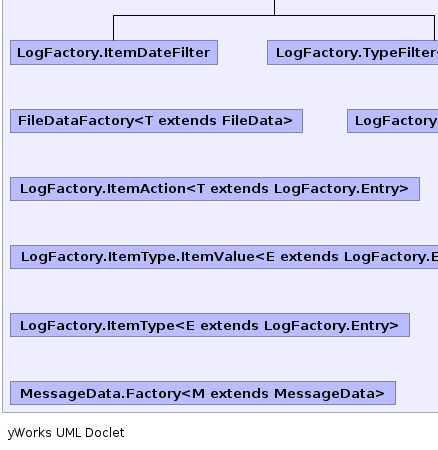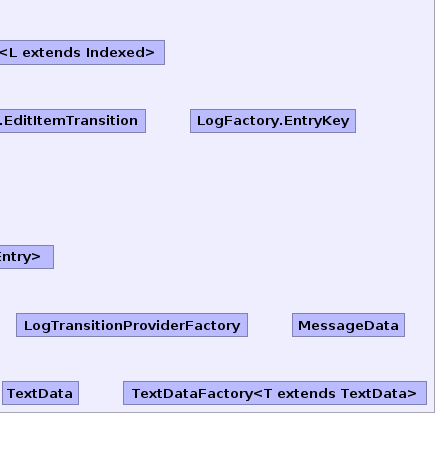-
Interface Summary Interface Description LogComposite<T extends LogFactory.ItemType> interface forComposites that add additionalLogFactory.ItemType.ItemValues to a factory.LogOwner<O extends Indexed> LogTransitionProvider Viewable Interface for types that have a view transition. -
Class Summary Class Description FileData FileDataFactory<T extends FileData> ADataObjectFactoryforFileDataLogFactory<T extends LogFactory.Entry,O extends Indexed> general log Entry class.LogFactory.Entry<L extends Indexed,F extends LogFactory,O extends DataObject> Base class for a log entryLogFactory.EntryKey LogFactory.ItemAction<T extends LogFactory.Entry> LogFactory.ItemType<E extends LogFactory.Entry> superclass for the type objects in sub-classesLogFactory.ItemType.ItemValue<E extends LogFactory.Entry> LogTransitionProviderFactory Top level TransitionProviderFactory that locates the Item TransitionProvider by going through the LogOwnerMessageData Table to hold message data Essentially this is just the serialised data from a MimeMessage object This is to ensure we can recover the full message including all headers We could be more memory efficient by storing the headers and content separately and recovering the message in bits but this is safer.MessageData.Factory<M extends MessageData> A Factory forMessageDataThis is not actually needed by the application but makes the tests easier to write as these rely on a handler factoryTextData Simple class to hold Text data in a table.TextDataFactory<T extends TextData> ADataObjectFactoryforTextData
Package uk.ac.ed.epcc.webapp.model.log Description
This package defines generic classes for supporting a time series log of different types.
This code is used by the helpdesk and the ifms system.
We aim to keep the code in this package independent of html/servlet.



